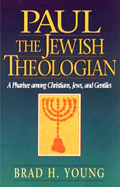GraceSeeker
Senior Member
Can anyone with some liturgical expertise tell me why we are using loves of bread in the UMC (which really doesn't look much like the bread Jesus used) rather than wafer as is used in the Episcopal Church and elsewhere? The problem with bread is finding something that isn't crummy and doesn't then look yuck floating in the chalice.
If we were trying to recreate Jesus' Last Supper then we most certainly should use unleavened bread. But, if recreating an historical event was our goal, then we should also be using wine, a common cup, having a full meal, and washing feet as well. What I think we are doing, or what I am doing at least, is trying to communicate into our culture today the grace that Jesus was revealing to his disciples and by extension to us today. For that I use bread as Jesus did. I interpret that to mean not unleavened bread specifically, but rather the common daily bread that those who are at table would recognize as bread. For some that would remain unleavened bread. But for others it would be a loaf of raised bread. For others still it might be pita bread or tortillas or even Twinkies -- depending on one's sitz im leben.
Upvote
0


